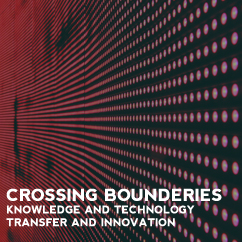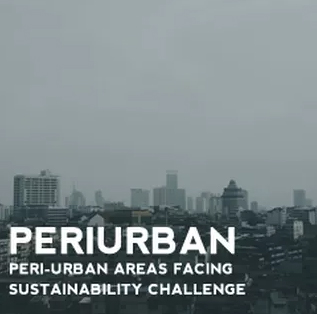Care(4)Housing - A care through design approach to address housing precarity in Portugal
Researcher
As clearly seen in the context of the COVID-19 pandemic, marked by the motto 'stay at home’, housing precarity showed, once again, persistent inequalities. Yet, the pandemic also revealed the importance of care: taking care and being taken care of, marked 2020, and the interdependency experienced by all suggests that ideas about care are also particularly relevant to the design of built environments. As expressed in the findings of the research project “How to stay home? Immediate interventions to fight COVID-19 in precarious neighbourhoods in Lisbon Metropolitan Area”, coordinated by LAGES [LagesJorge20], it is urgent to address how Architecture, as a discipline, can rethink and integrate the idea of care of/in the built environment, contributing to the construction of better and urgent answers to the current housing precarity. The current proposal follows this line. Care(4)Housing explores four dimensions on care through design. The first [SPATIAL] is rooted on the idea that we need to CARE FOR SPACE. The second [SOCIAL], follows the awareness that we need to CARE FOR PEOPLE. The third dimension, [TECHNICAL], it’s strongly related to BUILDING WITH CARE, consonant on how we, as a collective, care for the planet [FitzKrasny19]. The last one, [POLITICAL] defines CARE AS A TOOL. From the standpoint of an unfulfilled fundamental right, to the opportunity framed by the post-pandemic recovery plan for Portugal, planning to end housing precarity by 2026, this is the moment to discuss housing for all, within the academy and beyond.
Project Information
2022-01-01
2025-12-31
Project Partners
- DINAMIA'CET-Iscte (CT) - Leader
- FAUL - (Portugal)
- IGOT - (Portugal)
Crossing Boundaries: Knowledge and Technology Transfer and Innovation
Research Assistant
CrossingBoundaries aims to develop, through a programme of staff exchange, a new international & multi-disciplinary research community working in exploring the processes, challenges & implications on innovation performance of knowledge & technology transfer across national boundaries. This research community will focus particularly in addressing five research questions: 1. Who are the actors involved in the process of knowledge & technology transfer for the purposes of innovation across national boundaries? 2. What are the processes of knowledge & technology transfer across national boundaries & how do these differ according to the actors involved? 3. How do contextual factors (such as institutional divergence, cultural differences & geographic distance) influence the processes of knowledge & technology transfer across national boundaries? 4. How do organisational factors (such as technological capabilities, & the absorptive capacity of the firm) influence the processes of knowledge & technology transfer across national boundaries? 5. What are the implications for policy & policy transfer for innovation? The programme will contribute in the development of theoretical constructs in addressing the five research questions above, & provide an evidence base drawn from the experience of the countries involved in CrossingBoundaries that could be used to inform future research & policy. The proposed project will also develop country case studies that explore specific aspects (territorial, organisational and policy) aspects of these issues. An important aim of the programme is to create an enduring partnership and future collaborative research. This will be achieved in two ways. Firstly, the development of cross institutional doctoral supervision partnerships that will develop new researchers (augmenting the research community). Secondly, the involvement of the partner institution’s research and international officers in th...
Project Information
2012-12-01
2016-11-30
Project Partners
- DINAMIA'CET-Iscte
- University of Bradfo - (United Kingdom)
- - (Estonia)
PERIURBAN - Peri-urban areas facing sustainability challenges:scenario development in the Metropolitan Area of Lisbon
Researcher
The main objective of this project is to assess the potential of these peri-urban areas to meet future challenges for sustainable development in a changing world. It aims to look in-depth into the peri-urban areas of the Metropolitan Area of Lisbon (AML), its environmental, social, economic and institutional characteristics using a prospective approach.Methodology: In order to achieve this goal this project aims at: (1) identifying typologies of peri-urban areas based on its ecological, social, economic and institutional characteristics for the Metropolitan Area of Lisbon; (2) creating visions for peri-urban areas according to their typology by developing scenarios for case studies based on: (a) understanding structural and functional dynamics of each typology, taking into account: ecosystems services provided by each typology, identifying vulnerabilities; economic activities, their innovative potential, and evolving demand patterns; perceived quality of life of resident population and their expectation toward future developments; governance models and spatial planning systems at local scale, assessing its potential for change; and (b) expert and stakeholder participation, identifying the specific challenges that need to be faced by each peri-urban typology, namely in terms of the formulation of sustainability quality objectives; (3) bridging scientific and practice by communicating knowledge acquired in research and into useful and relevant information for planners and decisionmakers, developing strategic planning guidelines and governances models with stakeholders, and envisaging orientations to deal with the challenges faced by peri-urban areas.
Project Information
2012-03-21
2015-07-31
Project Partners

 Português
Português



